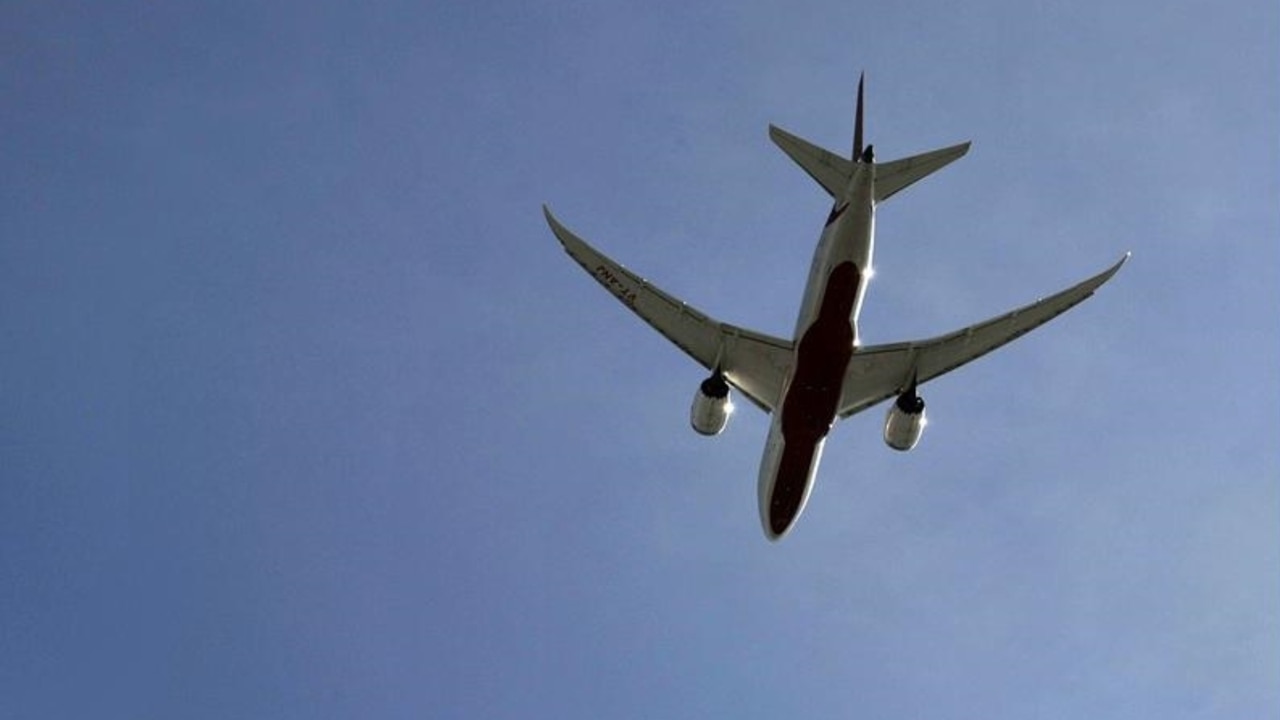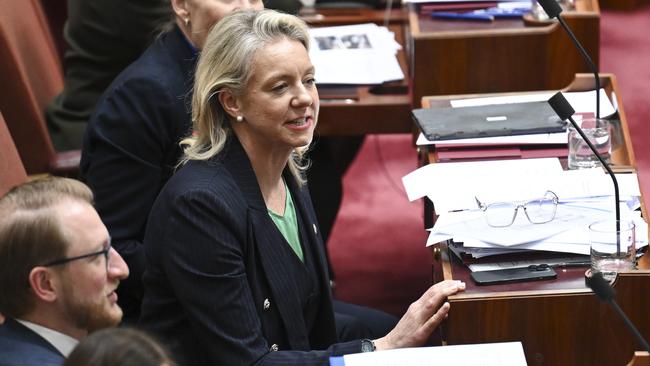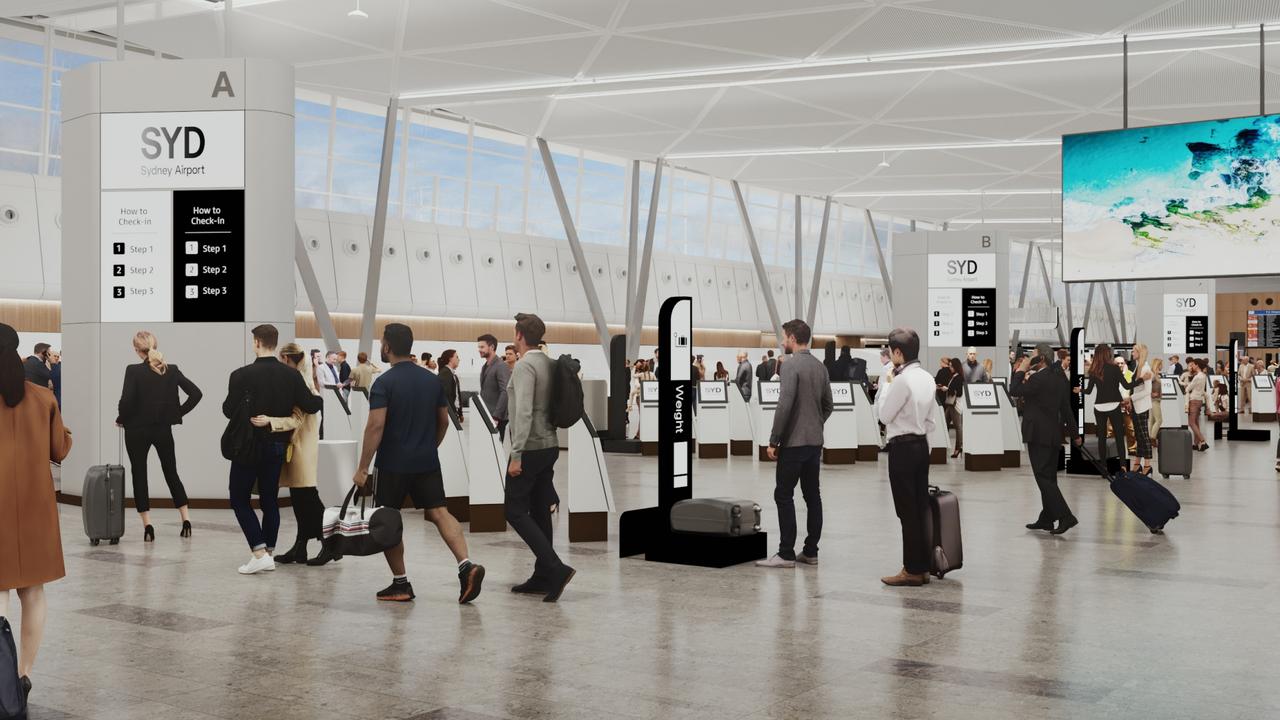Qantas hits back over calls for airline to divest low fares partner Jetstar
Qantas has rejected calls by Nationals Senator Bridget McKenzie for the government to have the power to force the airline to sell low fares partner Jetstar.

Calls by Nationals Senator Bridget McKenzie for the government to force Qantas to divest low fares partner Jetstar have been howled down by airline advocate Graeme Samuel.
The chair of Airlines for Australia and New Zealand (A4ANZ) said such a proposal was “populist politics at its lowest level” and made no sense.
Senator McKenzie said the government needed to address declining competition in the Australian aviation sector following the failure of Rex and Bonza, and should have the power to split up airlines if they used their monopoly position to inflate airfares.
Her comments followed a Treasury paper examining competition in the aviation industry, which found Qantas increased fares on routes where Jetstar also operated, but lowered prices when a non-affiliated airline competed.
Qantas defended its record, pointing out the Australian Competition and Consumer Commission had found no evidence of anti-competitive behaviour by the group in four years of investigation.
Professor Samuel went further, accusing Senator McKenzie of being “anti-Qantas” in an effort to win votes.
“What is coming out of the Nationals at the moment is quite extraordinary and none of it makes any sense,” said Professor Samuel, a former ACCC chairman.
“It’s populous politics at its lowest level and I would’ve thought that even the Nationals were better than that but it appears not.”
He said Senator McKenzie had “made a name for herself” on a Senate committee that took former Qantas boss Alan Joyce and new CEO Vanessa Hudson to task over issues at the airline group last year.
“She’s been running this issue of anti-Qantas since the Joyce days and none of what she’s had to say makes any common sense in terms of competition or lower fares,” Professor Samuel said.
“Unfortunately because it is a simple glib message it gets through to some out in the electorate and that’s a pity, I would’ve hoped we could expect better from our politicians.”
A4ANZ represented Virgin Australia as well as Qantas, Jetstar and Air New Zealand.
Virgin Australia declined to comment on Senator McKenzie’s proposal.
Qantas and Jetstar carry more than 60 per cent of domestic travellers in Australia, while Virgin Australia has market share of about 32 per cent.
Senator McKenzie said the Treasury’s review showed increasing competition lowered price growth and in some cases the mere threat of competition could lower airfares.

She suggested the government was protecting Qantas, and it was time for action to stimulate competition.
“After two years customers have seen reliability and choice decrease,” said Senator McKenzie. “Travelling by a plane is no longer a luxury good, it’s a service millions of Australians rely on, and it’s an essential service. If the Australian travelling public is saying this is not working for me, when does the government listen?”
Splitting up Qantas and Jetstar would be one option for increasing competition in the domestic airline sector, she said, but was not necessarily a “silver bullet”.
“You’re not just going to pull one lever and it’s all fixed, but right now it’s all silent. This is the Treasurer’s competition paper and he’s not talking about it.”
Her comments were downplayed by Nationals leader David Littleproud, who told Sky News breaking up Qantas and Jetstar was “not Coalition policy because we haven’t got the evidence”.
A Qantas spokesman said the airline “welcomed competition” and over the past year “domestic and international airfares have continued to trend down adjusted for inflation”.
“Since Jetstar launched 20 years ago it’s carried 400 million customers with more than half of them travelling for less than $100,” he said.
“The ACCC has been actively monitoring the aviation industry for the past four years and has made no findings of anti-competitive behaviour.”
Jetstar was established by Qantas in 2003 in response to competition from Virgin Blue, and now operates a fleet of 83 aircraft on domestic and international routes.
A number of overseas subsidiaries have also been established, including Jetstar Asia and Jetstar Japan.





